On View
A Generational Battle of Subversive Wit at Tribeca’s ‘Piss and Vinegar’
Come for the "maniacal spirit," stay for Hilary Harkness’s masterpiece.
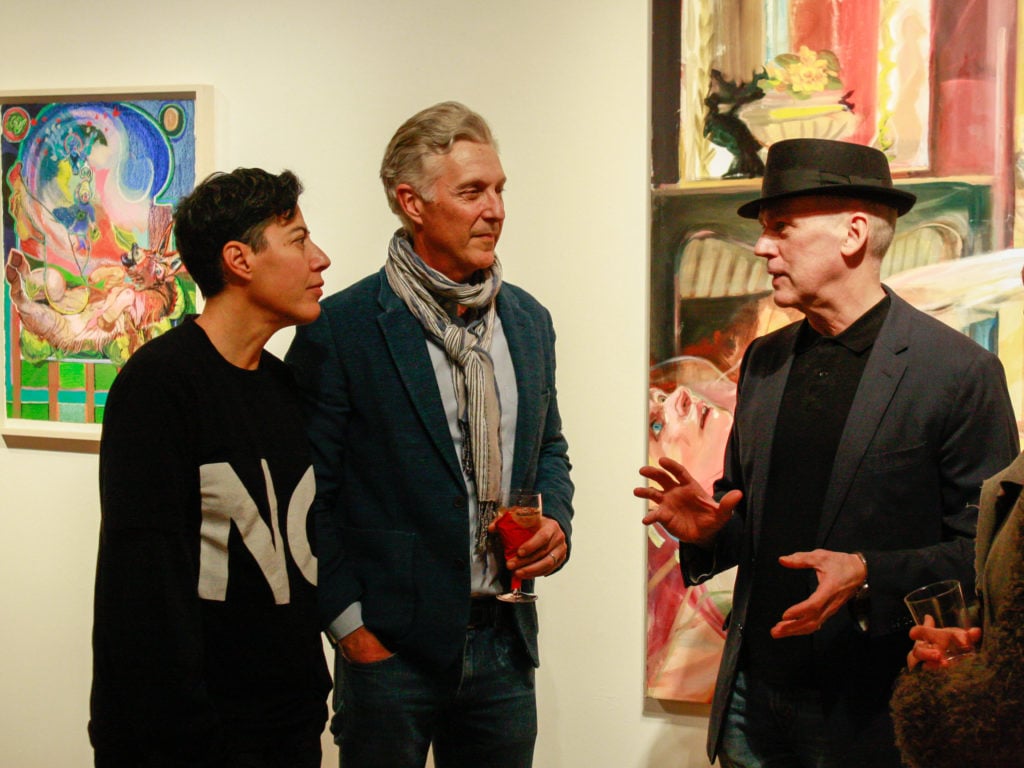
Come for the "maniacal spirit," stay for Hilary Harkness’s masterpiece.

Laura van Straaten

“Piss and Vinegar: Two Generations of Provocateurs,” now showing at the New York Academy of Art in Tribeca, is totally worth it, even if just for one artwork: a painting by artist Hilary Harkness.
First, the show. The exhibition aims to contrast an earlier generation of artists who use shock in their work with a younger generation of contemporary artists who use shock to different ends. As the show was being assembled, the curators realized the older generation was all men and the second, all women.
“It’s boys versus girls,” one New York Academy of Art employee short-handed—just like the games kids used to play at recess. Fittingly, the show’s on view in NYAA’s gymnasium-sized exhibition space through March 5.
The boys here are Robert Arneson, Robert Colescott, R. Crumb, Peter Saul, and Robert Williams. Their typically satirical and sarcastic paintings and prints display the cultural influences of the 1960s, the decade in which they came of age. (Think psychedelia and MAD magazine).
The girls’ team is mostly younger: Nina Chanel Abney, Sue Coe, Nicole Eisenman, Natalie Frank, and Harkness, the show’s MVP. The exhibition curators describe the women’s body of work as exploring, “the same subversive wit and dark, maniacal spirit.”
“Each artist here has art-historical fluency and serious technical skill but used both to push the boundaries of so-called good taste. They’ve chosen to pursue uncomfortable and maybe unpopular themes and to risk having their work called vulgar or grotesque,” says the academy’s dean Peter Drake, co-curator of the show along with George Adams.
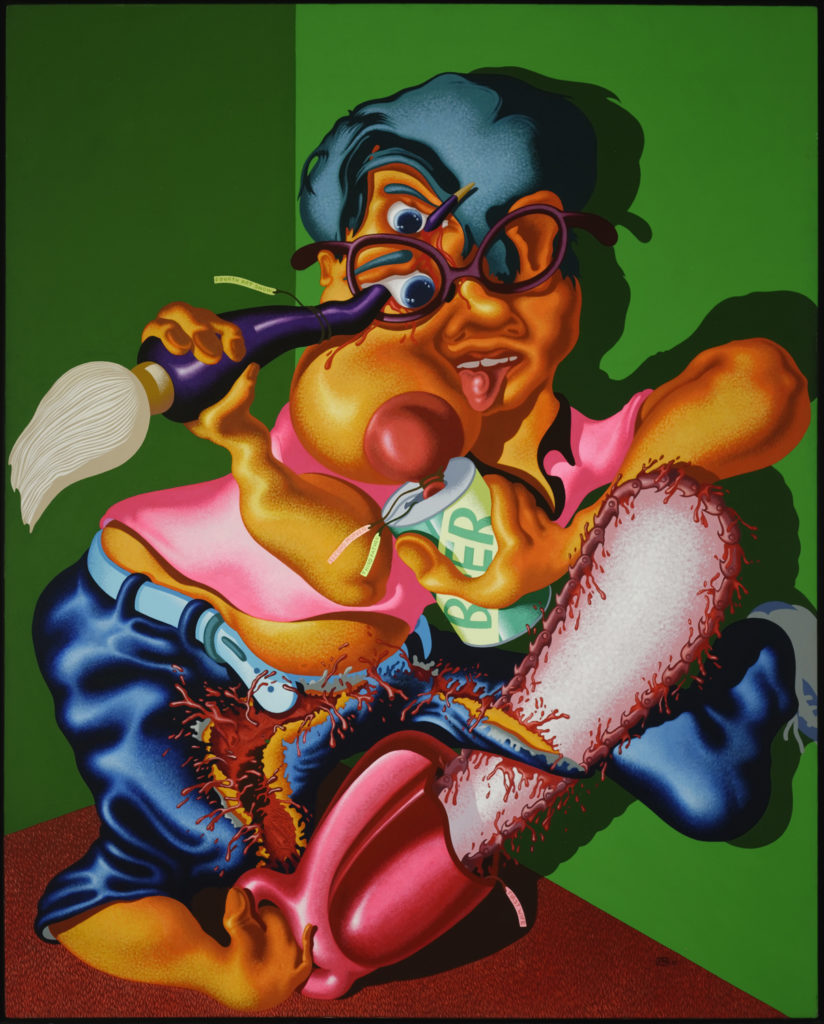
Oedipus Jr. by Peter Saul. Photo courtesy of the New York Academy of Art.
Now, hear ye, hear ye: Hilary Harkness. Forget the fact that Nervous in the Service was completed nearly eight ago, in 2009. It is fresh, in all senses of the word.
Harkness depicts a painstakingly rendered cross section of the collector’s New York townhouse, but she’s populated nearly every corner with a swarm of sailors involved in any sexual act you can possibly imagine, and many more that you can’t. When I puzzle over one tryst with two sailors and three penises, she laughs, “Oops!”
At just 25 by 31 inches, Nervous begs for a lean-in, yet reads as an epic narrative with no beginning, middle, or end. It’s an orgiastic Fleet Week fantasy, to which she has given each of the more than a hundred figures not only a face and body that is uniquely attractive but also a penis that is fully individuated in shape, color, and, shall we say, personality—even as each one is enormous.
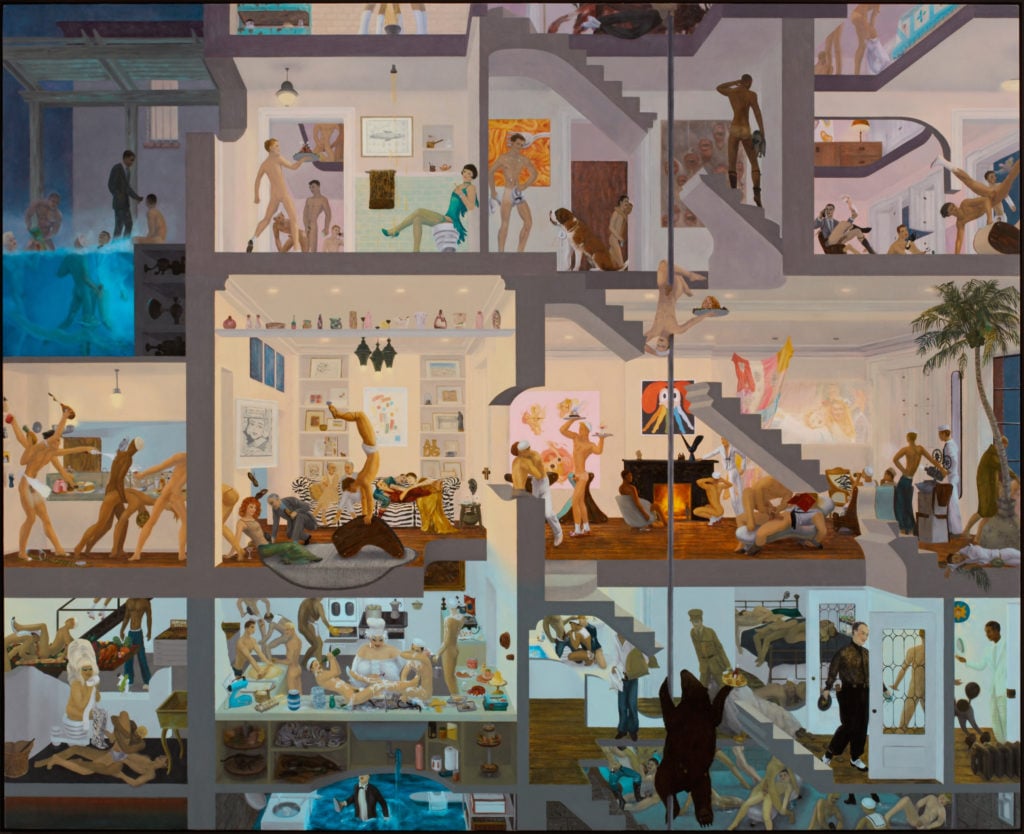
Nervous in the Service by Hilary Harkness. Photo courtesy of the New York Academy of Art.
Of the overall effect: “I see it as a male orgy to celebrate his fantastic art collection,” she says, noting that the collector is gay and that she enjoyed the challenges of painting gay men having sex, though at first, “I wasn’t sure I had the authority, even though I could relate in part.” (She is married to a woman.)
The art collection is all there, though she has taken some liberties with placement. “There’s the Lichtenstein drawing. And the collector really does have this Delacroix in a nook in his kitchen,” she says, pointing to the postage stamp version she’d painted.
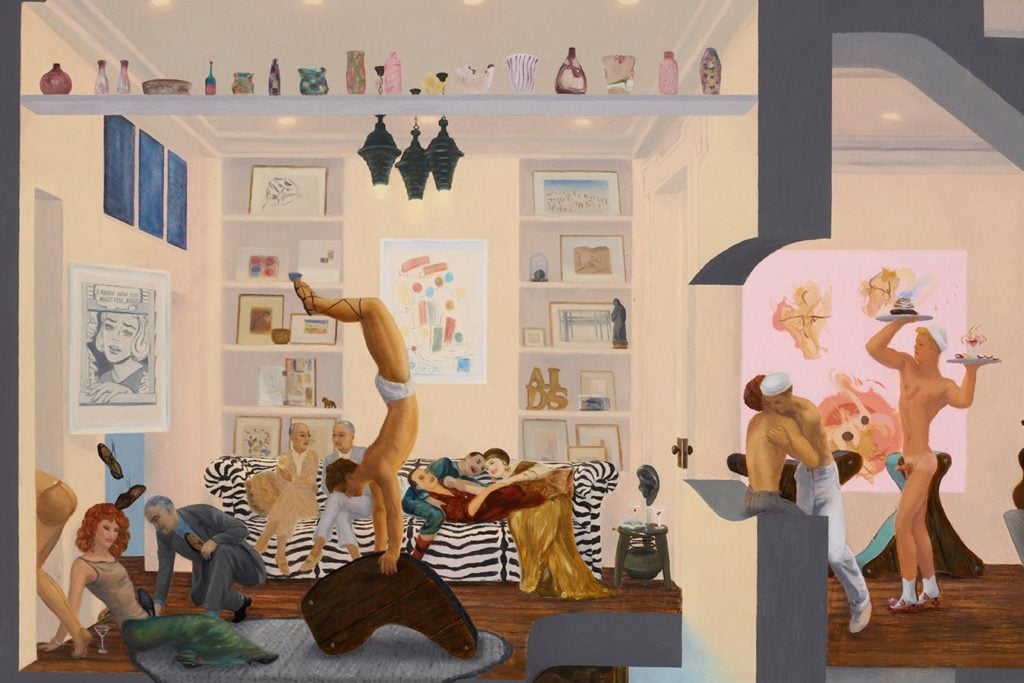
Detail of Nervous in the Service by Hilary Harkness. Photo courtesy of the New York Academy of Art.
There are also a bunch of art-world insider references, mixed with flights of fancy. One is Harkness’s dapper but daring depiction of gallerist Matthew Marks. “He’s walking off with a few stolen objects while bribing the doorman to look the other way,” she explains, pointing him out. “Why? I don’t know. It’s not an accusation of anything.” She squints at Marks’ carefully rendered chic: “I just thought he’d look good in some Versace.”
Elsewhere, atop a toilet shaped like Frank Lloyd Wright’s Guggenheim, Cyd Charisse makes a cameo, attired in her green get-up from Singin’ in the Rain. On the floor below, a Peggy Guggenheim drag queen canoodles with other guests on a couch. What was the inspiration for including references to Guggenheim? “The owner of the painting also owns furniture that Peggy Guggenheim had in her gallery Art of This Century—see, look here right by her,” Harkness says, adding that her fascination with that furniture continues and now informs a work in progress.
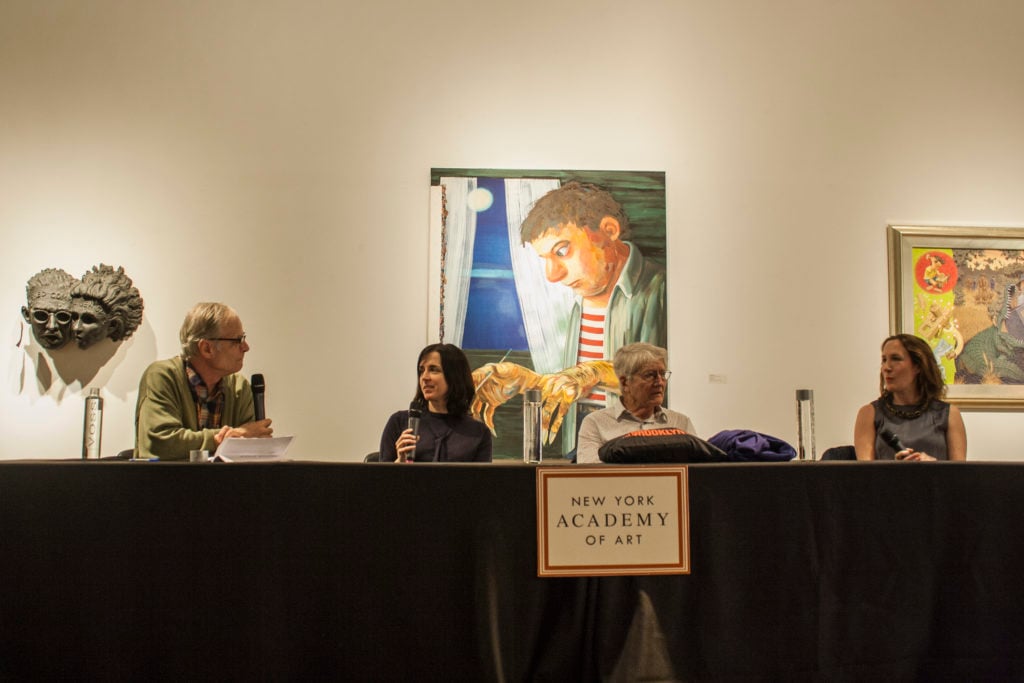
“Piss and Vinegar” panel. From left to right: Ken Johnson, Hilary Harkness, Peter Saul, and Natalie Frank. Photo courtesy of the New York Academy of Art.
On Wednesday, Harkness was part of a panel discussion in which she seems to have played the role of provocateuse especially well. She joined Frank and Saul along with the former New York Times critic Ken Johnson, who served as moderator. At one point, Johnson asked about the distinction between art and pornography. Gesturing to the works on the walls around them—filled with nudity, grotesquery and gore—Harkness retorted by asking Johnson, “Well, does this turn you on?” The audience laughed. “No,” Johnson replied. And, with the double satisfaction of having nailed a really good line and the feeling that perhaps people can finally put that debate behind them, the artist dropped her mic.
“Piss and Vinegar: Two Generations of Provocateurs” is on view through March 5 at The New York Academy of Art, 111 Franklin St. in New York.